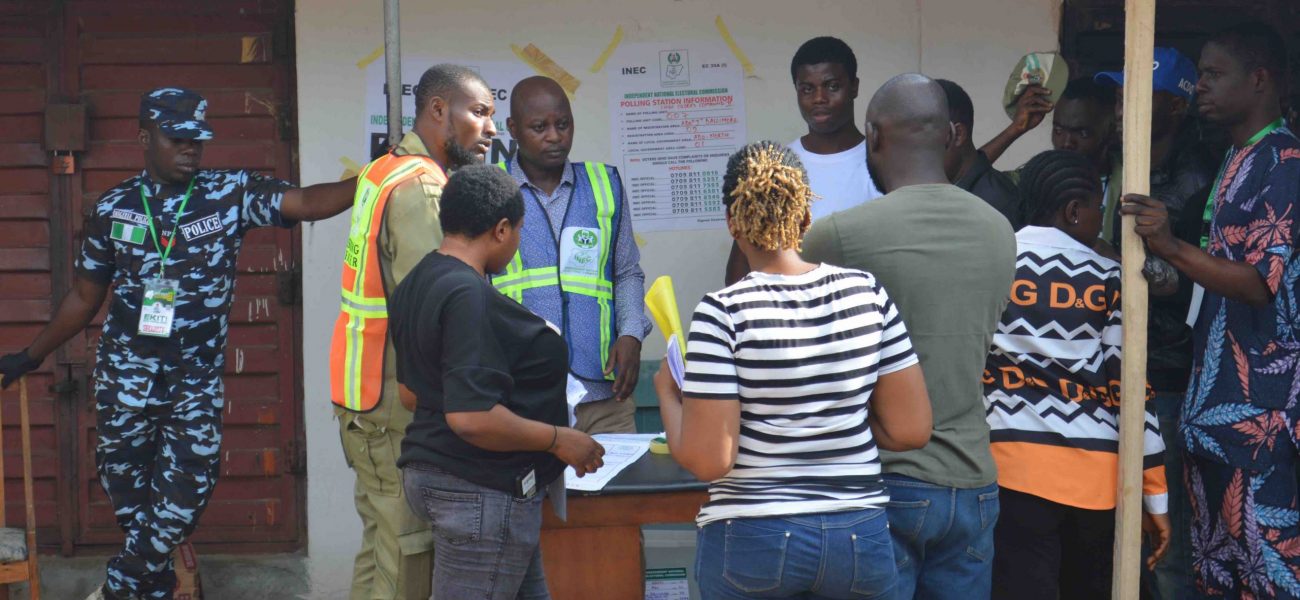The Ekiti State Governorship election held on Saturday, 18th June 2022, following which the Independent National Electoral Commission (INEC) declared the candidate of the All Progressives Congress (APC), Biodun Ayobami Oyebanji winner of the election. He scored 187,057 votes to defeat his closest rivals, the candidates of the Social Democratic Party (SDP) and the Peoples Democratic Party (PDP) who scored 82,211 and 67,457 votes, respectively.
The Nigeria Civil Society Situation Room, a platform of over 70 civil society organisations, observed the election. From its press statements released following the conduct of the election, it noted that the election was generally peaceful and that polls commenced early, an improvement from the 2021 Anambra State Governorship election and the Federal Capital Territory (FCT) Area Council elections in February 2022. Situation Room noted that the Bi-Modal Voter Accreditation System (BVAS) machines were functional in at least 76% of the polling units observed, although there were reports of delay and malfunction of the BVAS in some other polling units.
There were reports of widespread vote buying by political parties in the election with average amounts being mentioned as N5,000 or more. This trend that has persisted through various elections in Nigeria, remains a huge concern heading to the 2023 general elections. Money politics appears to be pervading Nigeria’s electoral process, especially in the light of the improvements by the Electoral Commission to safeguard votes through both physical and electronic means, to ensure that they count. This realisation has caused politicians to adopt an even more aggressive strategy of voter inducement, a trend that takes advantage of the high level of poverty in the country. Politicians and political parties have taken further steps to ensure the effectiveness of this strategy, as they now require voters to show their polling unit agents whom they have voted for, before handing over money to the individuals who have voted for them. INEC and security agents need to ensure that Nigerians are allowed to freely vote candidates of their choice without any form of inducement.

